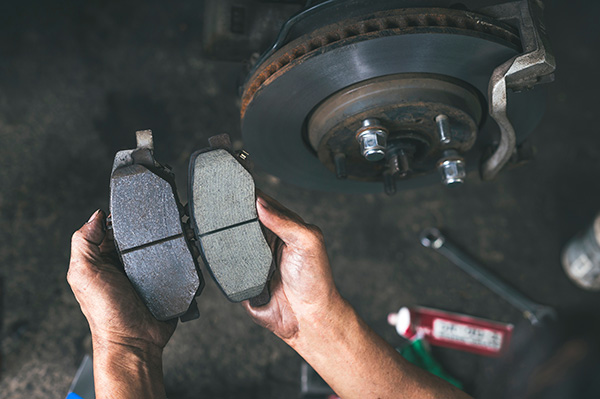
Your vehicle's brakes are like silent guardians, ensuring your safety on the road with every stop. But how do you know when it's time to replace those brake pads? Let's discover the telltale signs that your brake pads are worn down and need attention.
What Are The Brake Pads
Brake pads are essential to your vehicle's braking system, providing the necessary friction to stop your car safely and effectively. Made of durable materials like ceramic, semi-metallic, or organic compounds, brake pads gradually wear down over time due to rotor friction. Recognizing the signs of brake pad wear is essential for maintaining optimal braking performance and ensuring your safety on the road.
The Squeaky Sounds
One of the most common indicators of worn brake pads is a high-pitched squealing or squeaking noise when you apply the brakes. This sound, often likened to nails on a chalkboard, occurs when a small metal wear indicator built into the brake pad contacts the rotor, signaling that the pad is nearing the end of its lifespan. Ignoring this warning sign can further damage your brake system and compromise your safety.
Vibrations and Pulsations
Do you feel a pulsating sensation or vibration in the brake pedal or steering wheel when you brake? This phenomenon, known as brake pedal pulsation, can indicate uneven wear on your brake pads or warped rotors. As the brake pads wear down, they may develop uneven surfaces or become glazed, resulting in inconsistent braking performance and a less responsive pedal feel. Addressing this issue promptly can prevent further damage to your brake system and ensure smooth, reliable braking.
Unusual Odors and Burning Smells
Have you noticed a burning smell or unusual odor coming from your wheels after braking? This could be a sign of overheating brake pads due to excessive friction or brake fluid contamination. Overheated brake pads can lose their effectiveness and may even glaze over, reducing braking performance and increasing stopping distances. If you detect any strange smells while driving, it's essential to have your brakes inspected promptly to identify and address the issue.
Visual Inspection Matters
Sometimes, the most straightforward signs of brake wear are visible to the naked eye. Take a peek through your wheel spokes and inspect the thickness of your brake pads. If they appear thin, worn down, or have less than a quarter-inch of material remaining, it's time to replace them. Keep an eye out for uneven pad wear or signs of damage, such as cracks or chips, which can indicate underlying issues with your braking system.
Ready to stop worrying about your brakes? Trust Wes Jackson Automotive for professional brake pad replacement and maintenance services. Contact us today to schedule a thorough brake inspection.